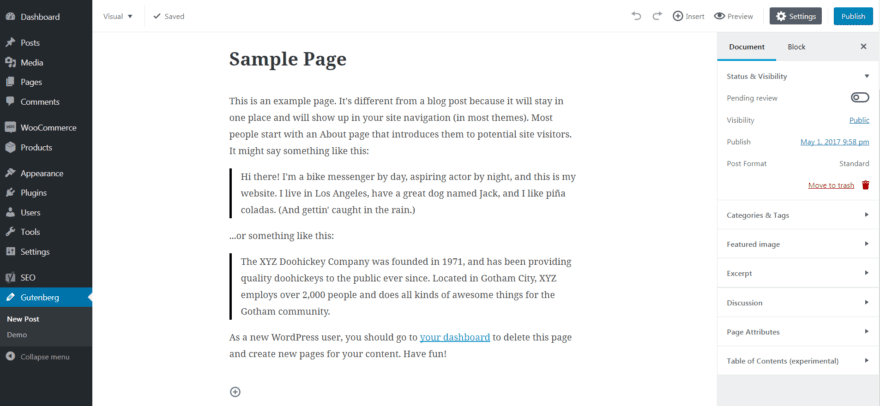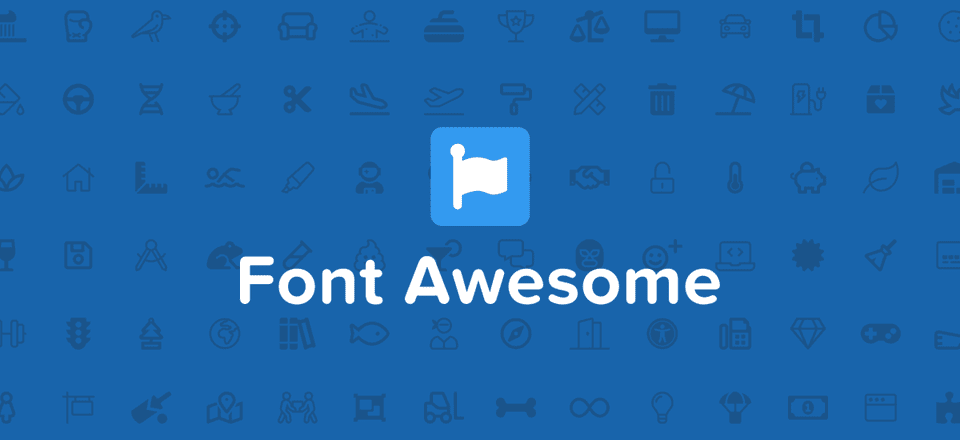It doesn’t matter whether you’re a web developer, web designer, or a WordPress-specific professional – technical knowledge alone isn’t enough to succeed in the workplace. You can be a wizard behind the keyboard, but without the “soft” skills to back it up, you might find your career getting stuck in a spot where you’re not happy.
In this article, we’re going to talk about what soft skills are and why they’re essential for every professional. Then we’ll talk about five key soft skills you need to cultivate if you want your career to flourish.
Let’s get to it!
What Soft Skills Are (And Why You Need Them to Grow as a Professional)
In a nutshell, “soft” skills refer to personal attributes and aspects such as effective communication, efficient decision making, creative thinking, and more. Essentially, any skill that helps you work better with others on a personal level. In fact, the term ‘soft skills’ is a bit of a misnomer, because those are the sort of proficiencies anyone can benefit from.
If you’re a talented web developer or designer, you’re probably never lacking for work. However, cultivating your soft skills can enable you to bring your business up to the next level. If you’re part of an agency or larger company, soft skills can also help you rise up the work ladder faster.
The truth is, as talented as you might be, lackluster interpersonal skills aren’t up to par, that’s going to hinder your career. There’s a reason, after all, why charismatic people can often be found in leadership positions. While they might not be as technically proficient as their subordinates, their excellent grasp of soft skills can enable them to hold teams together.
That’s not to say, of course, you should pay any less attention to honing your technical skills. If you’re a developer or a designer, you’ll need to stay on top of best practices. However, nothing is stopping you from being both a whiz at your job and to master certain useful soft skills.
5 Soft Skills Every Professional Should Cultivate
Although our area of expertise lies in web development and design, these five soft skills are a great fit for almost any field. If you make an effort to grasp all of them and incorporate them into the way you work, you should see positive results over the long term.
1. Learn to Communicate Effectively
It sounds like a cliche, but communication is key in any workplace. Just as with relationships, if there aren’t any effective lines of communication, you’re probably in for a rocky road.
For example, imagine a client wants you to develop an app for them. Your first move as a web developer should be to understand the scope of the project. In other words, ask what kind of features are needed, ascertain the timeframe, and more.
If you can’t communicate effectively with your client, you’ll never have a clear idea of what they’re looking for. This means the app will probably languish in development hell. Plus, if you’re part of a team, you won’t be able to tell them what it is you need from each member.
In our experience, the key to effective communication with clients is to ask as many questions as you need to get a grasp on what it is they need. Sometimes, they might not have fully formed ideas, and it’s your job to figure out what’s possible, what isn’t, and to tell them that in a way they can understand.
Only once you have a clear picture of your client’s needs, you’ll be able to communicate them effectively to your team and new projects off on the right foot.
2. Be Able to Offer and Receive Constructive Feedback
If you’re not learning from your mistakes as a professional, you probably won’t get far in the tech world. Take web design, for example. A lot of design work can be very subjective given the preference for different styles. If you’re a web designer, therefore, you’ll probably need to deal with a lot of negative client feedback based on some aspect of your deliverables that’s subjectively off the mark.
There are two ways you can take this feedback. You can get defensive about it and ignore what your clients want, or you can be open to it and look for ways to incorporate it into your work.
To be fair, there will be a lot of times when clients or superiors might not make the best design choices. However, you have to learn how to roll along with the punches and take feedback like a champ if you want people to think of you as a team player.
Effective communication also plays a key role here since it can help you give better feedback to team members and even clients. If you’re convincing enough, you might even be able to sway people over to your way of thinking and get away with design choices you wouldn’t otherwise (and the same goes for development work!).
3. Cultivate Self-Awareness (Particularly of Your Weak Spots)
Everyone has a weak spot in their skillset. It might be you’re a talented WordPress developer, but you don’t really have an eye for design. You could also be a talented web designer, but have little experience when it comes to good User Experience (UX) practices.
However, if you want to grow as a professional, you need to be aware of what your weak points are. That way, you’ll know exactly what areas of your expertise you need to hone. If you’re part of a team, you can also use this knowledge to figure out who can complement your particular skillset.
Take our earlier example of the developer who doesn’t have a good eye for design. In this case, an ideal combination would be to work with a talented web designer who can help them create a stylish front end for the functionality they develops.
On the other hand, if you refuse to take a look at what your weak spots are, you’re going to keep making mistakes that will affect your professional life. This also ties in with being open to accepting feedback. If you can receive feedback without taking it personally, you’ll have a much easier time figuring out what you need to improve about your skillset. After all, other people are often much better when it comes to spotting our weaknesses.
4. Understand How to Negotiate
A lot of people are scared of negotiating prices and salaries, due to fear of backlash. However, knowing what your value is and being upfront about it can be incredibly helpful throughout your career.
If you’re a freelance web developer, for example, how much money you make will depend on three factors:
- Your provable experience and past references.
- How good you are at finding new clients.
- What your hourly or per project rates are.
There are a lot of talented developers that excel when it comes to this first factor. However, they might not be as good at drumming up new business, and when they do, they undersell themselves.
The same happens if you’re employed at a company. Many will seek to hide information about salaries from you, even in fields like web development. In either case, your ability to drive a bargain without coming across as abrasive can mean the difference between a nice living and a great one.
To be an effective negotiator, you’ll firstly need to know what your value is. Fortunately, web development and design are the kinds of fields you can find a lot of data about online. A quick Google search should enable you to figure out what the median income is for someone with your level of experience in your region. With this information, you can easily calculate what your income should be and use it to back you up in a negotiation.
To be fair, being a good negotiator is about a lot more than just having numbers on your site. You’ll also need to be an effective communicator, which goes to show how closely linked most soft skills are.
5. Learn to Adapt
If you’re working in a field related to tech, such as web design or development, one of the best indicators of future success is your ability to adapt to changes.
Take the WordPress ecosystem, for example. The launch of the Gutenberg editor is imminent, and there’s still fierce debate as to its inherent value. As a WordPress developer, this means your workflow is probably going to change drastically within the next year.

If you’re willing to adapt to the changes and learn how to get the most out of the new editor, a lot of work opportunities will probably open up to you. On the other hand, if you refuse to adapt, your skillset might become outdated within a few years.
That’s just one example, though. With web development, there are always new frameworks, software, and workflows people will expect you to adapt to. The best way to prevent yourself from becoming too set in your ways is always to keep learning. Try out online courses, read tutorials, keep up with web development and design publications (like us!), and try out new things. It might seem like a waste of time in some cases, but we’re willing to bet it might also help you land jobs you wouldn’t get otherwise.
Conclusion
It’s very easy to fall into the trap of thinking that technical competence alone is enough to get you ahead in the workplace. Whether you’re a developer or a designer, you also need to round out your skillset if you want people to enjoy working with you. Plus, some soft skills can even help you hone your craft further, such as being able to take in feedback.
When it comes to soft skills, here are the five we consider most important for all professions:
- Learn to communicate effectively.
- Be able to offer and receive constructive criticism.
- Cultivate self-awareness (particularly of your weak spots).
- Understand how to negotiate.
- Learn to adapt.
Have you ever felt the need to hone your soft skills? Share your experiences with us in the comments section below!
Article thumbnail image by cifotart / shutterstock.com









Thanks 4 the shot in the BUTTOCKs as always needed!!! Great info as always love reading all the posts, almost though it was that comes with the subscription!!! Keep it up and thanks for the education, Happy Trails Where Ever They May Lead!!!
I’m very glad you liked it, Michael!
Thanks a million so inspiring!
You’re welcome, Samuel 🙂
Thank You, this reading is what I needed right now. 🙂
I’m glad to hear that, Haley! 🙂
5 essentials no matter what industry. Right on point JH!
Thank you, John. 🙂
Great article especially the last point and I hope that DIVI will be 100% compliant and compatible with Gutenberg with the next DIVI release so that Developers and Agencies can test out weak points which might still exist and ET can get constructive feedback to solve all those weak points until WP 5.0 gets released. Until now most Gutenberg elements can’t get really be integrated into a DIVI Layout or can be reused in DIVI. Many Elements are even duplicated – existing in DIVI and Gutenberg, so it would be great to reduce more and more DIVI elements and get more and more Gutenberg and DIVI compatible Elements working instead without the need to have always 2 equal functional elements available for the DIVI page design and then again for i.e. the Blog or other custom post types which work best actually without that cluttered DIVI Divs (which are simply way to much nested and nested in a nested nest, much to much be honest)
You were going grand till you mentioned Gutenberg!
Clearly, it’s a divisive topic, but that’s also what made it a good example when discussing the need to adapt. Now, exactly how you choose to adapt is another question entirely, of course. 🙂
I think at least looking at Gutenberg and how it works is a good thing.
WordPress though has over 20 page builder plugins.
These articles exist primarily to capture search traffic, so it’s no surprise there with that “keyword”. It’s also why the opening sentence includes:
“web developer, web designer, or a WordPress-specific”
Very informative, thanks for the post.
You’re welcome, Paul. I’m just glad you found it helpful. 🙂
Great article! Thank you so much!
Hi John, excellent tips. I personally believe communication skills play a key role no matter what industry you are in.
It might be your hard skills that get you the interview, but it’s the soft skills that bring you success in your career in 2018 and beyond. If you’re a professional web designer or an affiliate marketer, you must know how to close a deal and negotiate with others smoothly.
Once you nurture your negotiation skills, you can master the art of selling like a pro which is the most important thing that makes or breaks your career.
To put it simply soft skills are your personal capabilities that determine how well you work with others and if you can generate real results by working with a team or solo, you’ll succeed in whatever industry you’re in.
Another less known soft skill that most people don’t talk about is be comfortable with being uncomfortable. You need to face challenges, adopt to the new environment and think big to be able to achieve bigger results.
Thanks for sharing your insights John. Keep up the great work.
Thanks, Michele. That’s great to hear!
Thanks. It was really useful article
I’m glad you enjoyed it, Ali!